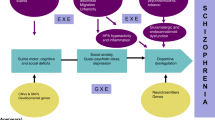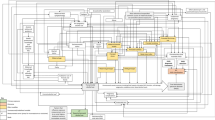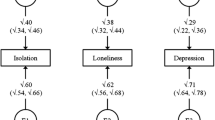Abstract
Reading disability (dyslexia) is a major social, educational, and mental health problem. Although estimates of prevalence vary, up to 10–15% of school-age children have severe reading deficits in spite of average intelligence and adequate educationalopportunity1. That reading disability may have aconstitutional basis has long been recognized2, and results of twin and family studies suggest that one or more of its forms may be heritable3,4; however, definitive evidence for a genetic aetiology has not been reported. Establishing a heritable basis for reading disability could suggestpossible causes, give improved risk estimates, facilitate early diagnosis, and provide validity tests for ostensible subtypes. In this report, we apply a recently developed multiple regression analysis5,6 to data collected from a sample of 64 pairs of identical twins and 55 pairs of fraternal twins, in which at least one member of the pair is reading disabled, and present evidence for a significant genetic aetiology.
Similar content being viewed by others
References
Brown, B. S. in Dyslexia: An Appraisal of Current Knowledge (eds Benton, A. L. & Pearl, D.) v–vii (Oxford University Press, 1978).
Critchley, M. in The Dyslexic Child (Heinemann, New York, 1970).
DeFries, J. C., Vogler, G. P. & LaBuda, M. C. in Perspectives in Behavior Genetics (eds Fuller, J. L. & Simmel, E. C.) 29–56 (Erlbaum, Hillsdale, 1986).
Smith, S. D. Genetics and Learning Disabilities (College-Hill, San Diego, 1986).
DeFries, J. C. & Fulker, D. W. Behav. Genet. 15, 467–473 (1985).
LaBuda, M. C., DeFries, J. C. & Fulker, D. W. Genet. Epidemiol. 3, 425–433 (1986).
DeFries, J. C. in Biobehavioral Measures of Dyslexia (eds Gray, D. B. & Kavanagh, J. F.) 107–122 (York, Parkton, 1985).
Wechsler, D. I. Examiner's Manual: Wechsler Intelligence Scale for Children-Revised (Psychological Corporation, New York, 1974).
Wechsler, D. I. Examiner's Manual: Wechsler Adult Intelligence Scale-Revised (Psychologi cal Corporation, New York, 1981).
Dunn, L. M. & Markwardt, F. C. Examiner's Manual: Peabody Individual Achievement Test (American Guidance Service, Circle Pines, 1970).
DeFries, J. C., Plomin, R., Vandenberg, S. G. & Kuse, A. R. Intelligence 5, 245–277 (1981).
Nichols, R. C. & Bilbro, W. C. Acta Genelica 16, 265–275 (1966).
Satz, P., Morris, R. & Fletcher, J. M. in Biobehavioral Measures of Dyslexia (eds Gray, D. B. & Kavanagh, J. F.) 25–40 (York, Parkton, 1985).
Rodgers, B. Br. J. educ. Psychol. 53, 369–373 (1983).
Author information
Authors and Affiliations
Rights and permissions
About this article
Cite this article
DeFries, J., Fulker, D. & LaBuda, M. Evidence for a genetic aetiology in reading disability of twins. Nature 329, 537–539 (1987). https://doi.org/10.1038/329537a0
Received:
Accepted:
Issue Date:
DOI: https://doi.org/10.1038/329537a0
- Springer Nature Limited
This article is cited by
-
Single Nucleotide Polymorphisms Associated with Reading Ability Show Connection to Socio-Economic Outcomes
Behavior Genetics (2017)
-
Heritability of non-speech auditory processing skills
European Journal of Human Genetics (2016)
-
Genetic influences of resting state fMRI activity in language-related brain regions in healthy controls and schizophrenia patients: a pilot study
Brain Imaging and Behavior (2013)
-
Meta-analysis of the Association Between DCDC2 Polymorphisms and Risk of Dyslexia
Molecular Neurobiology (2013)
-
A Dyslexia-Associated Variant in DCDC2 Changes Gene Expression
Behavior Genetics (2011)





